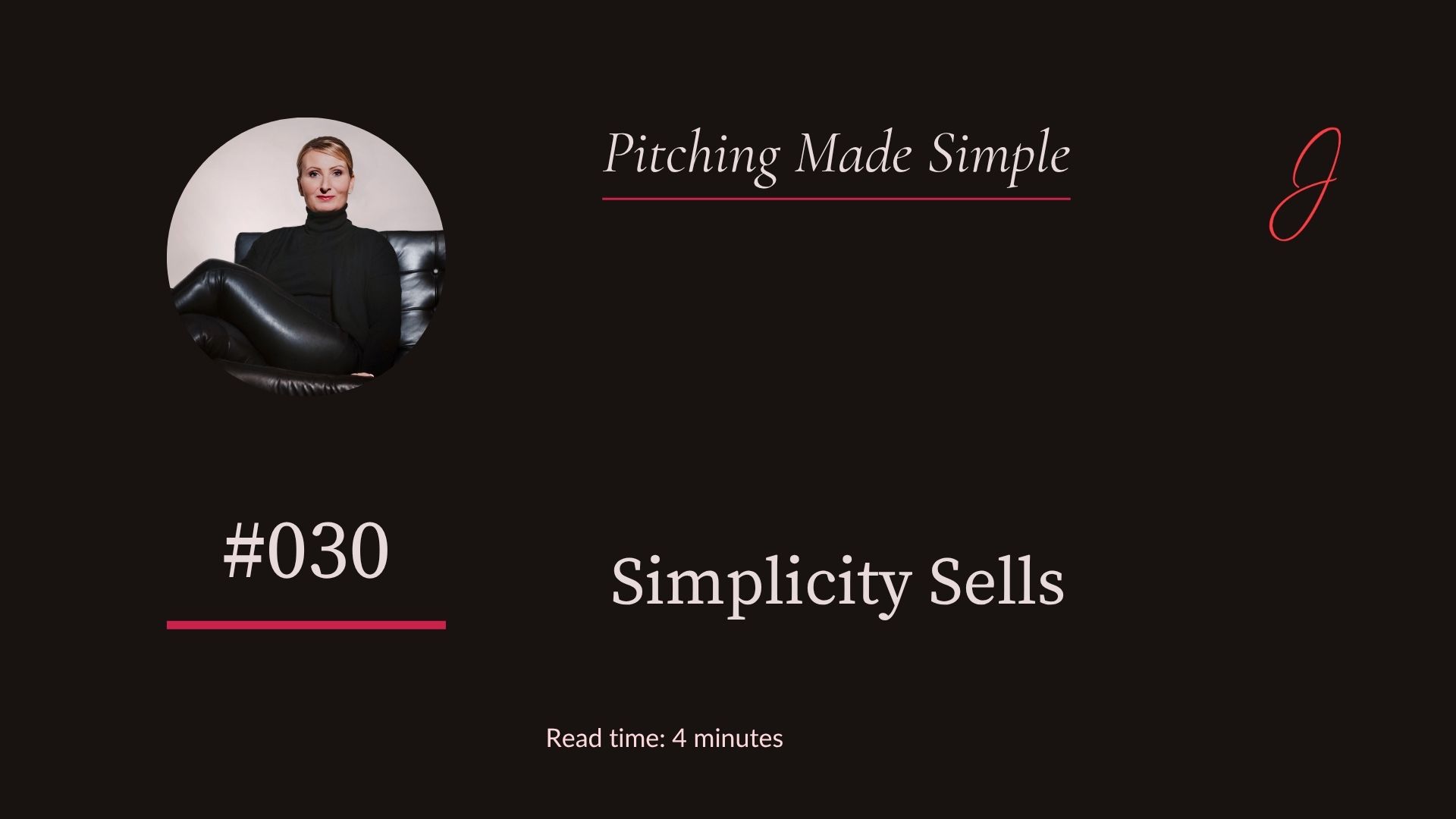#030 | Simplicity Sells

When I worked at Ericsson, my main job was to present the company’s solutions to VIPs such as CxOs, industry leaders, governments, investors, and even royalty.
Yes, I did over 5000 presentations in 5 years. That number sounds wild, but when you're doing event after event, it adds up pretty fast.
One of my biggest learnings from this period was:
My job wasn’t to explain everything.
It was to make them want the next meeting.
Ericsson built a team of just five people to do one thing:
Pitch simply, clearly, and with emotion.
We didn’t touch the technical depths. We painted the big picture. We created curiosity. We opened up the door to possibilities.
And if we did our job right, the technical team was invited in for the second meeting.
This lesson stuck with me.
Most Founders Over-Explain.
In my 11+ years coaching startups, I’ve seen too many brilliant founders crash in the first 3 minutes of a pitch - not because their idea wasn’t good, but because it wasn’t clear.
- They over-explained.
- They tried too hard.
- And they lost the room before the magic even began.
At Ericsson, I learned something that still guides me today:
“The faster they understand, the faster they say yes.”
And if they feel something - even better.
Over-explaining is everywhere, and especially in startup pitching. Founders fall into the trap of thinking that more detail = more credibility. But it backfires.
Here’s what I hear all the time:
-
“We’re like Stripe, but on the blockchain -with tokenized identity management and compliance built in.”
-
“Let me start with our architecture before I explain the market.”
-
“It's a bit complex, but I’ll walk you through it...”
What’s really happening?
Founders are trying to prove instead of connect.
They’re so close to the product that they forget what it sounds like to someone new.
And I get it - many founders are afraid of making it too simple, thinking the investor might feel talked down to.
But here’s the truth:
If they don’t understand it, they won’t fund it.
You don’t need to talk to an investor like they’re 12 years old.
But you should be able to explain it so clearly that a 12-year-old gets the basic value.
Because clarity builds confidence. Complexity creates doubt.
Ask yourself:
-
Do I lead with user benefits or technical features?
-
Have I tested my pitch on someone outside my industry?
-
Am I trying to prove I’m smart - or am I making it easy to say yes?
Here’s What to Do Instead.
Make It Simple. Make It Emotional. Make Them See the Future.
Startups that learn to simplify their message see a dramatic shift in engagement, momentum, and results.
Here’s what works:
-
Lead with the benefit, not the build.
“We help HR teams hire 3x faster.” (instead of “We’ve built a recruitment workflow engine using AI/ML and NLP”) -
Replace jargon with outcomes.
“It reduces churn by 25%.” (not “predictive behavior scoring on user signals”) -
End with a bold vision of the future.
“Imagine a world where every small business has enterprise-level hiring tools—without needing an HR team.” (not “Now here are 18 more features…”)
Why does this work?
Because it makes the investor feel something first.
Emotion drives decisions. Logic justifies them.
And only once they’re emotionally in do they actually want to hear the deeper story.
